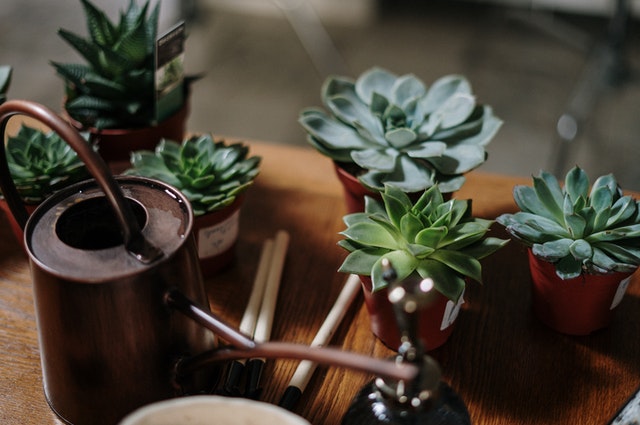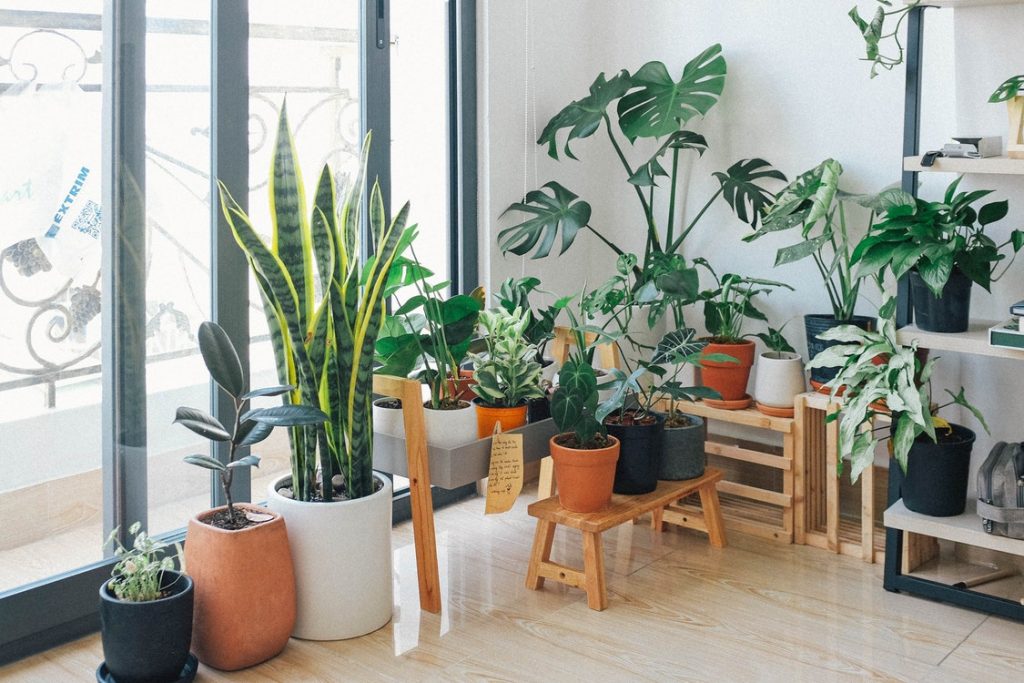Natural organic fertilizers like SeaCliff products are made from nutrients that do not readily become available to plants. Instead, these nutrients are digested by beneficial microorganisms living in the soil. This digestion process is dependent on the microbial population of the soil, as well as the temperature and humidity, both of which must be high to support microbial activity and keep nutrients flowing into the root zone of plants. The temperature also plays a role, as rising temperatures make plants need nutrients more rapidly.
Fish and Shellfish
Gardeners are often advised to apply organic compost to their plants, but they may not be aware of the benefits of fish and shellfish fertilizer. The process of composting shellfish is sustainable and imparts the soil with nutrients. Unsalted, uneaten shellfish should be buried several inches beneath the soil or placed in a hot compost pile. Because shellfish have an unpleasant odor when decomposing, these waste products may attract pests.
Shellfish contain nitrogen and are a great source of organic fertilizer. Crab meal, for instance, contains calcium, phosphorous, and trace minerals. Additionally, it deters ants, slugs, and grubs. Another benefit of shellfish fertilizer is its slow release and safety for use near water systems. It is not toxic to plants and does not leach nitrogen into water runoff.
The production of seafood, shellfish, and finfish involves large amounts of waste. Many of these waste materials are compostable and can be applied to the soil. However, the amount of organic nitrogen in these products depends on the stabilization of the waste materials. Some companies will compost fish scraps with wood chips to make them more stable. Ultimately, the goal is to produce a natural fertilizer that is as organic as possible.
Traditionally, most of the processing waste generated by shellfish and fish is land applied or disposed of. Although this method is environmentally sound, it also creates a variety of issues related to odor, toxicity, and nutrient availability. For instance, composted fish and shellfish waste can contain high amounts of P and N, but the rate of decomposition is limited. This means that the soil is not as rich in nutrients as it is before.
Cottonseed Meal

Cottonseed meal is a natural, slow-release fertilizer that contains large quantities of nitrogen. This type of fertilizer also improves soil aeration. It also contains trace minerals and is high in potassium, phosphorus, and nitrogen. The high-nitrogen content of cottonseed meals helps plants grow healthier and faster. Moreover, this organic fertilizer contains no animal ingredients or byproducts, so it’s ideal for vegan gardens.
In addition to nitrogen, cottonseed meal also contains phosphorus, potash, and trace elements. Before you start using it, though, it’s best to test the soil. The slow release of nutrients means that your plants need less fertilization, and the worms will appreciate it. Cottonseed meal is also safe for home lawns, which can benefit from about three to four pounds of it. This organic fertilizer helps to promote strong turfgrass roots.
If you’re worried about the negative impacts of cottonseed meal on your soil, you can balance its pH with a few pounds of agricultural lime. Besides this, cottonseed meal is 100 percent organic and can develop mold and fungal growth when left out in the open. To avoid these issues, it’s best to store it in a dry place in a tightly sealed container. But make sure to always store it in an area with a low humidity level.
While organic cottonseed meal is the best option for your garden, you must keep in mind the risks of using it on livestock. Cottonseed meal contains traces of pesticides. Typically, these chemicals only affect the foliage and cotton, and rarely make it to the seeds. If you’re worried about using cottonseed meals, then you should opt for an OMRI-rated one. Otherwise, you’ll be wasting your money!
Neptune’s Harvest
Ocean Crest Seafoods, Inc., distributes Neptune’s Harvest organic liquid fertilizer, a product made from fresh fish and seaweed from the North Atlantic. The company uses over 60 naturally occurring plant nutrients, including macronutrients, to make its fertilizer, which contains over 60% seaweed. This product is OMRI listed and formulated with organic principles. It can be used on any type of garden soil and is available in a number of varieties.
It comes from fresh, North Atlantic fish, which are chelated and then released into the soil. It contains all the nutrients a plant needs, including nitrogen. The nutrients are chelated to benefit plants, while the fish’s proteins are retained. There’s no fishy smell to this fertilizer, and the product is safe for most types of plants. It also outperforms conventional chemical fertilizers.
The ingredients in Neptune’s Harvest’s Fish and Seaweed blend are known to increase plant sugars, making plants healthier and more resistant to disease and pest damage. Moreover, the higher the sugar content, the better your fruits and vegetables will taste, and your flowers will be more beautiful and appealing. This organic fertilizer is not toxic to people, pets, and the environment. Use two to 2.5 gallons per acre of soil.
One of the most effective and complete organic fertilizers available is Neptune’s Harvest Fish and Seaweed Blend. This product contains a blend of seaweed and fish hydrolysate, giving your plants the most complete nutritional support possible. It also helps build soil organic matter and improves the quality of your plants and fruit and vegetable crops. It is also effective in combating pests and weeds and works great with your soil.
Worm Castings
Adding worm castings to the soil is a fantastic way to increase your plant’s fertility and reduce compaction. Worm castings also improve the pH level of your soil, which is an important feature of a healthy plant. Worm castings are also beneficial for the health of your soil, as they increase its moisture-holding capacity and aeration. They also improve the structure of your soil by adding organic matter, a form of “living” carbon to it. Additionally, they reduce acid-forming carbon in the soil and boost the level of nitrogen in your soil.
Worm castings are also great for seedlings. In addition to powering seedlings, they also hold moisture around them, resulting in faster sprouting. When mixed with seed starting soil or potting soil, worm castings are beneficial for growing healthier transplants. You can also steep worm castings in water and apply them to your plants as a liquid fertilizer. Regardless of what you decide to use worm castings for, you can rest assured that they won’t damage your plants.
Worm castings are not a great source of macronutrients, but they do add other beneficial elements to your soil. They are extremely low in NPK but can help your plants absorb other nutrients, such as phosphorus and potassium. Worm castings also do not stimulate root growth, although some people claim to have noticed bigger roots after using worm castings. While these may be the result of healthy soil and good fertilizer, it is hard to say for sure.
Compost
The best organic fertilizer for your plants is compost. Compost is composed of organic matter and contains all the essential elements, minerals, and nutrients your plants need to grow and thrive. There are three main types: nitrogen, potassium, and phosphorus. Compost is rich in calcium and other nutrients and helps your plants retain water and oxygen. Compost is also inexpensive, easy to make, and all-purpose. To make compost at home, simply collect kitchen scraps, garden waste, and yard leaves. The compost is ready for application once it turns dark brown. Turning the compost every few days will keep it fertile.
The best compost for your plants is made from decomposed organic material, such as shredded twigs, leaves, and kitchen wastes. Compost is considered “black gold” by many gardeners. It improves the soil’s water-holding capacity and makes it easier to work, especially on clay soils. It also adds organic matter to your soil and promotes stronger, drought-tolerant plants. Compost is also a great source of potassium and phosphorus, which your plants will need to grow healthy.
If you don’t have access to a compost bin, consider using a commercially made organic fertilizer instead. Composting is a slow process, and organic materials should be moist and rich in carbon. Add some commercial fertilizer for added nitrogen to speed up the process. Make sure your compost pile has ample moisture. Otherwise, it will rot and smell. When it’s done, you can start incorporating compost into your garden and enjoy the benefits.
Seaweed
If you want to make your own organic fertilizer for plants, you can use seaweed. Seaweed is a water-soluble material that will provide your plants with many essential nutrients. Seaweed is suitable for most plants, including houseplants. It will make your flowering plants produce more blooms, your fruit sweeter, and your vegetable yields will be greater. Seaweed can also help increase the acidity of the soil, which will be good for plants growing in areas with high pH levels. You can buy a fertilizer made of seaweed that will increase the acidity of the soil, which is good for your plants. In addition, you can also add iron to your soil.
When using seaweed in fertilizers, it is important to look for the best quality. Look for products that aren’t heat-treated or pressurized, as this will keep the beneficial components of the seaweed intact. Furthermore, manufacturers of these fertilizers must also ensure sustainable harvesting. While some regions experience overharvesting, the issue is becoming more scrutinized. Good harvesters are beginning to be recognized.
Seaweed fertilizers are made from the organic materials of various species of seaweed, including bladderwrack and Norwegian kelp. Typically, they are sold as liquid fertilizer, which is easy to incorporate into the garden soil. Seaweed fertilizer contains a variety of nutrients, including micronutrients, trace elements, and growth hormones. It improves soil quality and can balance the NPK content of the soil. It is also good for the environment and can make plants healthier.




